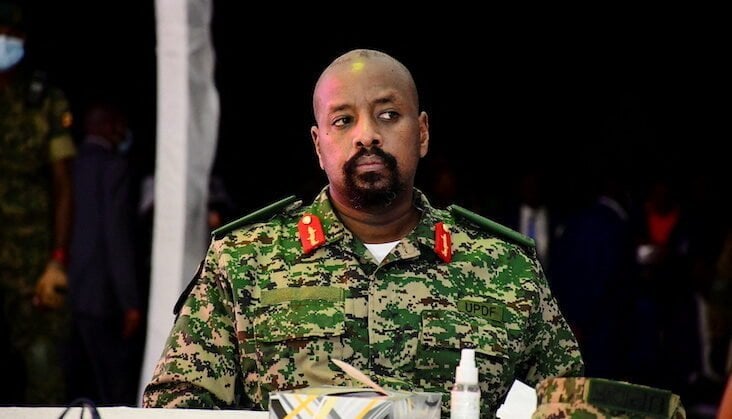Prime
Is Muhoozi right on war as one path to regional unity?

Author: Okodan Akwap. PHOTO/FILE.
Did Gen Muhoozi Kainerugaba’s joke about invading Kenya touch something needed to move the East African Community (EAC) to a political federation? Let’s look at history.
The nation-state is a product of war. Europeans who created the nation-state fought a devastating 30-year war (1618-1648) before they opened their eyes to notions of unity, sovereignty, good neighbourliness, mutual recognition, etc.
After it started, the war escalated rapidly, eventually incorporating all sorts of cross-cutting issues, many of them revolving around selfish interests. They fought until they got exhausted. In 1648 they signed the Peace of Westphalia, also known as the “peace of exhaustion.” That is how things such as legitimacy, independence, mutual recognition, and international law, among others were born.
In 1919, the League of Nations was created after a devastating World War I, also known as the “Great War.” The League was supposed to make sure that such barbaric behaviour would give way to a world of peace, democracy and international law. The league collapsed quickly, partly because the US Senate did not ratify its treaty.
It was replaced by the United Nations in 1945, after an even more devastating World War II, which saw two nuclear bombs dropped on Hiroshima and Nagasaki in Japan, causing indescribable loss of life and property. That’s what shaped the world as we know it today. That world is full of notions of regional integration, but with differing priorities.
According to the World Bank, regional integration has allowed countries to improve market efficiency, share the costs of large infrastructure projects, decide policy cooperatively, have a building block for global integration, and reap other non-economic benefits, such as peace and security.
However, the bank notes the fact that countries may have different preferences on priorities for regional integration, depending on their connectivity gaps, economic geography, or preferences for sovereignty in specific areas.
The history of EAC attests to this. It collapsed in 1977 and was revived in 1999. But the first stage of a free trade area was skipped. We started from the stage of a customs union. Quickly a common market was announced and now there is talk about a monetary union, which would be a step away from a political federation. This is a huge mistake.
At the free trade area stage, pertinent issues would have been ironed out. For example, tariffs between EAC member countries would have been significantly reduced, and some abolished altogether. Each member country would have kept its tariffs regarding third countries, including its economic policy.
EAC countries would have traded for many years before getting into a customs union, which sets common external tariffs among member countries; the same tariffs would apply to third countries. A common trade regime would be achieved neatly.
But look at how things turned out. You hear Kenya banning this and that product from Uganda. You hear Tanzania banning this and that product from Kenya. You hear calls for retaliation. And you hear voices for inverting the traditional sequence of moving towards full regional integration to allow political integration to precede economic integration. The idea behind such reasoning is that an economic union can’t work without a political union.
You will remember that in April 2006, President Museveni appointed Ms Beatrice Kiraso as the deputy Secretary General of the EAC in charge of “fast-tracking political federation.” His argument seemed to be that political aspects should prevail over economic ones in the pursuit of regional integration. But this idea seemed to be unpopular among other EAC members, especially Kenya and Tanzania.
What we don’t seem to be hearing about a lot in East Africa is something called Initiative for the Integration of Regional Infrastructure (IIRSA). The thrust of IIRSA would be to create an interconnected network of transport, energy, and communications infrastructure in the seven member countries. I am not aware of any overtly functioning EAC structural policy.
Given the uncertainty of the trajectory of the EAC, a devastating war sucking in all or most of the members might just be the best thing to let East Africans appreciate the need for regional unity.
Mr Okodan Akwap (PhD) is an associate consultant at Uganda Management Institute.




